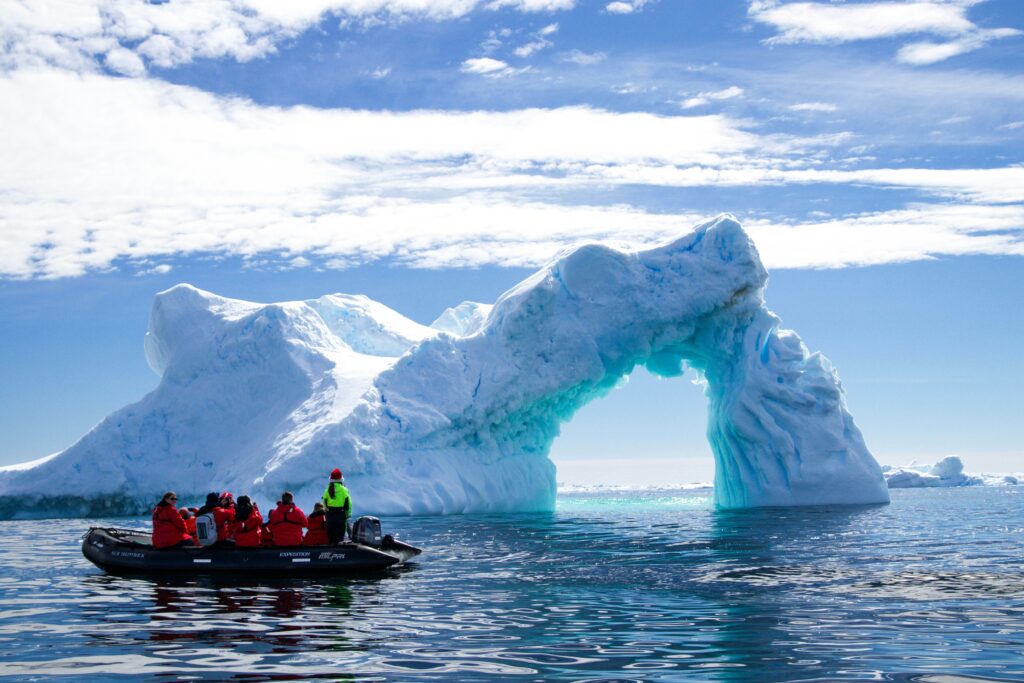
Rapid sea ice loss in Antarctica could trigger long-term climate feedbacks and harm marine life, even if global emissions are curbed, according to a new study. Scientists warn that Antarctic sea ice may be approaching a tipping point, potentially losing most of its summer sea ice before the Arctic, which would accelerate both regional and global warming.
The study, reported by Jenipher Camino Gonzalez for Deutsche Welle, highlights the significant disruption already occurring in ocean currents, which reduces the ocean’s ability to absorb carbon dioxide and amplifies the effects of climate change. Marine species such as emperor penguins and krill, which depend on sea ice, are at increased risk of extinction, along with phytoplankton that help regulate the Earth’s carbon balance.
The Tipping Point of Antarctic Sea Ice
Scientists have long monitored the delicate balance of sea ice in the polar regions, but recent findings suggest that Antarctica may be on the brink of a critical threshold. The loss of sea ice is not just a regional concern; it has far-reaching implications for the global climate system. As the ice melts, darker ocean water absorbs more heat, which accelerates warming. This process, known as the albedo effect, further destabilizes the climate.
“Once we start losing Antarctic sea ice, we set in train this self-perpetuating process. Even if we stabilize the climate, we are committed to still losing Antarctic sea ice over many centuries to come,” said Nerilie Abram, chief scientist at the Australian Antarctic Division.
Impact on Marine Ecosystems
The fragile Antarctic ecosystem is intricately linked to the presence of sea ice. Species like krill — tiny crustaceans that underpin much of the ocean food web — thrive beneath it, while animals like emperor penguins breed on top of it. The disappearance of sea ice threatens these species with collapse, which could have cascading effects on biodiversity and ocean health worldwide.
Krill, for instance, are a primary food source for many marine animals, including whales, seals, and fish. Their decline would disrupt the entire food web, leading to potential declines in these dependent species. Meanwhile, phytoplankton, which also rely on sea ice, play a crucial role in carbon sequestration, helping to mitigate climate change by absorbing carbon dioxide.
Global Implications and Future Outlook
The loss of Antarctic sea ice is not just an environmental issue but a global one. As sea ice diminishes, it disrupts global ocean currents that are responsible for moving heat and nutrients around the planet. This disruption can lead to more extreme weather patterns and further complicate efforts to combat climate change.
Historically, the polar regions have acted as Earth’s refrigerator, keeping the planet cool. The rapid warming in these areas is a stark reminder of the urgency needed to address climate change. While international agreements aim to reduce carbon emissions, the study suggests that the effects of past emissions will continue to impact the Antarctic region for centuries.
Looking forward, scientists emphasize the need for immediate action to protect these critical ecosystems. Efforts to reduce greenhouse gas emissions must be coupled with strategies to protect and restore sea ice habitats. This dual approach is essential to preserving biodiversity and maintaining the delicate balance of the Earth’s climate system.
The announcement comes as global leaders prepare for upcoming climate summits, where the focus will be on enhancing commitments to reduce emissions and protect vulnerable ecosystems. The findings underscore the importance of international cooperation in addressing the challenges posed by climate change.
As the world watches the unfolding situation in Antarctica, the message is clear: the time to act is now. The decisions made today will determine the health of our planet for generations to come.






